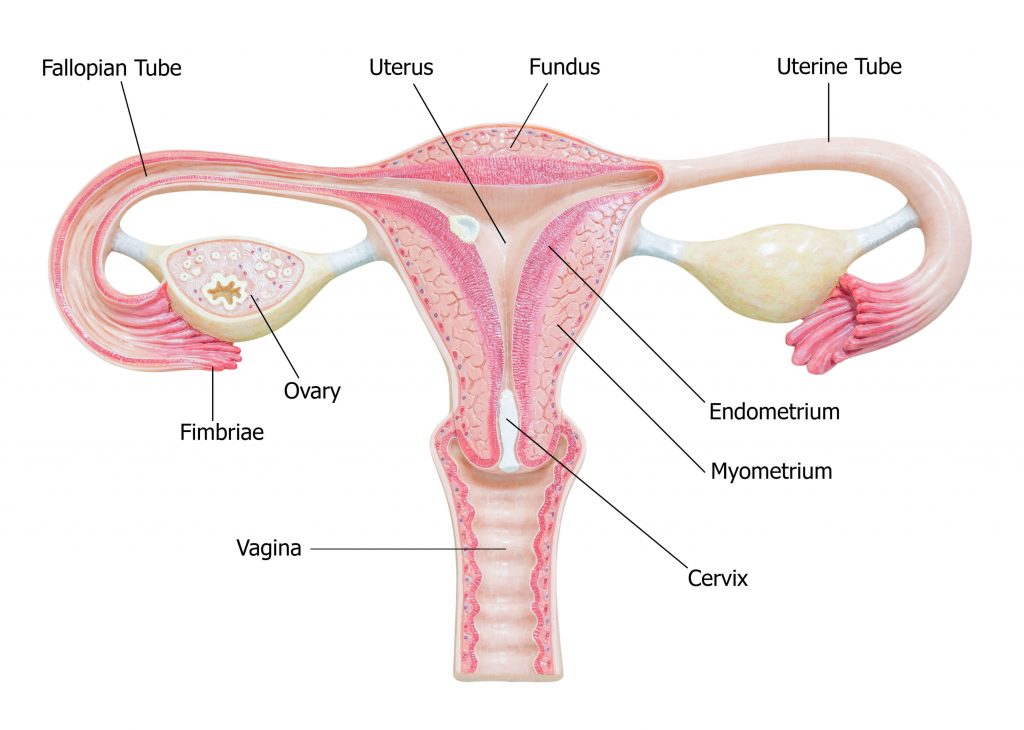Women's Health
Ovarian Cysts and Infertility: Is There a Connection Between the Two?

Ovarian cysts are fluid-filled sacs that develop inside or on the surface of the ovaries.
Women have two ovaries, each about the size and shape of an almond, located on either side of their uterus (or womb). The ovaries contain eggs, which are released in monthly cycles over your childbearing years, together with the reproductive hormones estrogen and progesterone.

Ovarian cysts are common in women and do not usually cause any symptoms. Most ovarian cysts are harmless and tend to go away in a few months without treatment.
However, some ovarian cysts, especially large ones can cause severe symptoms. For example, they can rupture or cause ovarian torsion (i.e. the twisting of your ovary). Ovarian torsion is painful and may also decrease or stop blood flow to your ovary.
Hence, it is advisable to schedule regular pelvic examinations with your gynaecologist.
Types of Ovarian Cysts
While most ovarian cysts, known as functional cysts, develop as a result of your menstrual cycle, some ovarian cysts may be associated with decreased fertility.
Read on to know the different types of cysts.
Functional Cysts
The ovaries grow cyst-like structures called follicles every month. If a normal monthly follicle continues to grow, it is known as a functional cyst. These cysts are harmless, rarely cause pain, and often disappear on their own within two to three menstrual cycles.
There are two types of functional cysts:
Follicular Cysts
Typically, around the midpoint of your menstrual cycle, an egg bursts out of its follicle and travels down the fallopian tube.
A follicular cyst forms when the follicle does not rupture or release its egg but continues to grow.
Corpus Luteum Cysts
A corpus luteum formed in an ovary at the site of a follicle that has matured and released its egg, in the process known as ovulation.
When fluid accumulates in the corpus luteum, it can grow into a cyst.
Other Cysts
The following cysts are not related to your menstrual cycle.
Dermoid Cysts
A dermoid cyst can contain tissue, such as hair, skin, or teeth because they form from embryonic cells.
Cystadenomas
Cystadenomas develop on the surface of an ovary and may be filled with watery or mucous material.
Endometriomas
Endometriomas develop as a result of endometriosis, a condition in which endometrial cells grow outside your uterus. Some of the tissue can attach to your ovary and form a growth.
Endometriosis is closely tied to infertility, and endometriomas are merely a symptom of this condition. Some studies demonstrate that women with even mild cases of endometriosis have only a 2-4% chance of getting pregnant each month compared to the 15-20% chance that healthy women have.
Latest Articles
How Are Abdominal Hernias Treated?
What to Expect from Colorectal Surgery
How to Treat Breast Inflammatory Conditions
Gynaecomastia: Understanding Male Breast Cancer
Ovarian Cysts Treatment
The treatment for an ovarian cyst varies depending on the type of cyst, its size, and its symptoms. If there are no symptoms associated with the cyst and an ultrasound shows the cyst to be harmless, your gynaecologist may advise you to monitor the cyst carefully and wait for it to heal on its own.
Medications
In some cases, hormonal medications such as birth control pills may be prescribed.
These help to prevent ovulation, thus reducing the chance of new cysts developing.
Surgery
If your cyst is large and symptoms are persistent, your gynaecologist may recommend surgery to remove the cyst.
As with any surgery, there are some risks involved. These include blood loss, pain, damage to tissue and organs, reaction to anaesthesia, and scarring. Your gynaecologist will guide you through the risks, what to prepare before the surgery, and what to expect for recovery after the surgery ends.
Conclusion
If you have persistent symptoms, it is advisable to see your gynaecologist. He or she will run you through the different treatment options available to you and recommend the one most suitable for your condition.
Furthermore, if you are concerned about whether your ovarian cyst may affect your fertility, you should discuss any questions you may have with your gynaecologist.
Although there is no way to prevent the formation of ovarian cysts, regular gynaecological checks may pick up ovarian cysts. Be alert to changes in your monthly cycle, including unusual menstrual symptoms, especially ones that persist for more than a few cycles.
Read this next ...
WHO WE ARE
关于SOG
新加坡O&G有限公司(SOG)成立于2011年,我们的愿景是创立一个专业的医疗和外科团队,从而满足现代女性及其孩子和家人的医疗保健需求。我们的诊所遍布新加坡各地,女性和儿童能够方便地享受我们高质量和值得信赖的个性化医疗保健服务。
- 产科
- 妇科
- 妇科肿瘤
- 乳房和普通外科
- 皮肤科
- 儿科
Recommended Specialists




